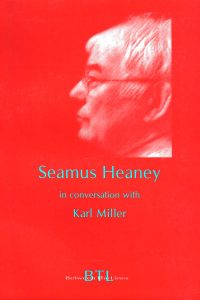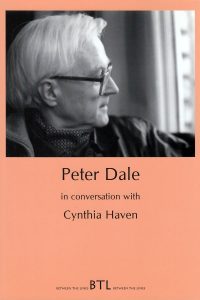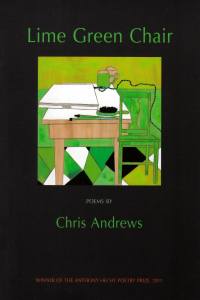Richard Wilbur in Conversation with Peter Dale
£9.50
A 96 page volume, which as well as its lengthy and fascinating interview contains a career sketch, a comprehensive bibliography, a representative selection of quotations from Wilbur’s critics and reviewers and the title poem of Wilbur’s most recent collection, Mayflies.
Out of stock
Between The Lines
Even without the mastery of his poetic voice, Richard Wilbur would be outstanding among his contemporaries for the sheer generosity of his vision. In this conversation Wilbur speaks openly and intimately of his poetry, his translations and his life. We meet an uncomplicated, wholehearted man; intelligent, humorous, reflective, passionate in his affections, his views, and his friendships. Reading this exchange with Peter Dale demonstrates the sense and insight of Theodore Roethke’s well-known description of Wilbur as ‘Not a graceful mind […] but a mind of grace, an altogether different and higher thing’.
– Ian Tromp
Mariani’s biography of Berryman records that you and Berryman once went together to get Delmore Schwartz released from the police-station after one of his drunken excesses. How well did you know these two? Did the Dream Songs come as a shock? They seem to have shaken Lowell a bit.
I never knew Schwartz very well, though he and I had served together on an NBA jury which gave the prize to Red Warren’s Brother to Dragons, or perhaps to a book of Conrad Aiken‘s. And we’d once had an evening’s rambling talk in Syracuse, admiring Socrates (as I remember) for drinking the hemlock rather than letting his friends spirit him away. On the occasion mentioned by Paul Mariani, Schwartz was in fact more mad than drunk, as the police knew by the time Berryman and I arrived at the station. He was shouting through the bars of his cell, ‘Everything I do is done on the orders of the Chief Executive,’ and the police, who didn’t wish to cope with madness, were glad to let us pay his drunk-and-disorderly fine and take him away. From the early ‘60s on, Berryman and I were friends and, though we saw each other seldom, were in frequent touch by mail or telephone. John often called at the damnedest, darkest hours of the night. His successive book-manuscripts were sent me for criticism, as they were to Bill Meredith and a number of other friends. It troubled me to say – as I did – that the latter books, though full of fine flashes, were uneven and not up to the Dream Songs. He was generous toward my work, and it was at his urging that I got going on a translation of his favourite Molière play, The School for Wives.
I heard Geoffrey Hill, when asked at a poetry reading why he wrote such glum poems, reply, ‘Because it pleases me to be gloomy.’ Unusually, perhaps, for a poet of the twentieth century, you are not attracted by gloominess.
Well, gloom isn’t very agreeable in everyday conversation, but I think that Geoffrey Hill is quite right to say that in poems it can be pleasing: Tennyson and Longfellow can be gloriously morose, and Auden tells the poet to ‘Sing of human unsuccess / In a rapture of distress.’ Affirmation and delight can also be pleasing in poems. Indeed, a lyric or song-like poem can satisfy by the strong, simple expression of any emotion whatever. But when poetry becomes more complex than a song, and offers more than a single mood or message, a good part of its power to please must lie in its articulation of a whole consciousness, with all its doubts, ignorances, shifts, and contradictions. Articulateness exalts us, regardless of what is said. I have an inclination to be positive, but I hope that in most of my work I’m not a cheerleader for the universe but a describer of how it feels to be in it.
Well, it’s commonly said that happiness writes white. But at the back of your optimism and equability there seems to be some supporting kind of faith in an ultimately benign world. Could you say something that might confirm or qualify this impression?
I do have such a trust. Voltaire’s Candide, with which I’ve had a long working acquaintance, argues rightly that it’s inhuman to be sunny in the presence of agony and disaster. But to trust in the ‘ultimately benign’ nature of things is another matter. I should add that, though I once experienced a severe depression through the unwitting over-use of valium, it’s my nature to be of good cheer.
I suppose a poem like ‘Children of Darkness’ suggests a kind of faith in the ultimate goodness of the world:
Gargoyles is what they are at worst, and should
They preen themselves
On being demons, ghouls or elves,
The holy chiaroscuro of the wood
Still would embrace them. They are good.
One can see how a conservationist or evolutionist might think these fungi and whatnot are good in that they fill an essential role in the cycle of things, but you mean to imply more than that?
Yes, the poem is about fungi, and their bad reputation in folklore, and the good work that they do in the renovation of nature. At the same time, it may be read as a brisk, oblique, forty-five line statement of what Milton more grandly argues in Paradise Lost: that, in the great rhythms of the creation, good is brought out of evil.
An unattuned British ear might feel that it neatly expresses an intellectual or even religious idea but, to put it oddly, it doesn’t feel as if you felt it on the pulses, to adapt Keats. This is a type of criticism I am sure you have encountered before, and not just from the ‘wilder’ end of the poetic world: Jarrell wrote: ‘In Wilbur the man who produces the poems is somehow impersonal and anonymous.’
If I have your permission to be a little hazy, let me begin by saying that many people, just after World War II, experienced that shaken sense of meaning and purpose which led, in France, to existentialist philosophy and the lonely, depleted figures of Giacometti. In such an atmosphere, there could be a special charge on any writing which tried to be passionately faithful to things, to external reality. A poem of that kind could offer not merely the capture of something in words, but a sense of escaping from the isolate ego in the direction of ‘the other’, and ultimately, perhaps, toward a more intelligible human world. Back in 1948, after a poetry conference at Bard College, I said that sort of thing at length in an essay awkwardly called ‘The Bottles Become New, Too’, in which I responded to the conference speeches of Louise Bogan and William Carlos Williams; Bill Williams was one poet in whom I found the kind of drama I’m talking about: in a poem like ‘Young Sycamore’, he’s on-stage only in the first line, where he says ‘I must tell you’; the rest of the poem – what he urgently wants to say – is wholly concerned with conveying the upward sweep and ramification of a small street-side tree, from sidewalk-level to the tip of its crown. Williams is full of poems in which he breaks out of himself and makes implicitly ecstatic contact with some part of reality; a few pieces of broken glass in the gravel can suffice him. I found, in my early days, a related quality in Marianne Moore’s descriptive coups, in those poems where Lawrence outwitted the ‘obscene ego’, and in the Francis Ponge who wrote Le Parti Pris des Choses.
All that may begin to explain why one of my earliest poems says ‘have objects speak’, and praises ‘the devout intransitive eye’ of Pieter de Hooch. Rightly or wrongly, I felt back then that it could be downright good to seem anonymous, and to let much of one’s notions and emotions be implicit – as, for instance, in Williams’ little poem ‘Between Walls’. I was encouraged in this, no doubt, by Eliot’s recommendation of impersonality, by my own reserve, and by my dislike of lapel-grabbing persons and poems.
The Waywiser Press
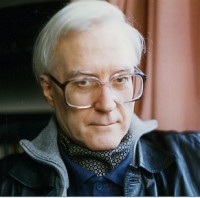
Peter Dale was born in Surrey in 1938, and educated at Strode’s School, Egham, and St Peter’s College, Oxford. For twenty-one years he was head of the English department of Hinchley Wood School, Esher, and concurrently an editor of the poetry quarterly Agenda. Well-known for his Penguin verse-translation of Villon, he has recently published a terza-rima version of Dante’s Divine Comedy and his selected poems, Edge to Edge, both with Anvil Press Poetry Ltd. His Richard Wilbur in Conversation with Peter Dale was published by Between The Lines in 2000. Revised and extended editions of his Poems of François Villon and his Poems of Jules Laforgue appeared from Anvil in 2001. He currently edits a poetry column for Oxford Today.
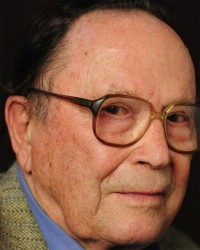 Richard Wilbur was born in New York City in 1921. His books of poetry include New and Collected Poems (1988), which won the Pulitzer Prize; The Mind-Reader: New Poems (1976); Walking to Sleep: New Poems and Translations (1969); Advice to a Prophet and Other Poems (1961); Things of This World (1956), for which he received the Pulitzer Prize and the National Book Award; Ceremony and Other Poems (1950); and The Beautiful Changes and Other Poems (1947). He has also published numerous translations of French plays, two books for children, and a collection of prose pieces, and has edited such books as Poems of Shakespeare (1966) and The Complete Poems of Poe (1959). His The Catbird’s Song: Prose Pieces is due this spring from Harcourt Brace. Among his honors are the Wallace Stevens Award, the Aiken Taylor Award for Modern American Poetry, the Frost Medal, the Gold Medal for Poetry from the American Academy of Arts and Letters, the Bollingen Prize, the T. S. Eliot Award, a Ford Foundation Award, two Guggenheim Fellowships, the Edna St. Vincent Millay Memorial Award, the Harriet Monroe Poetry Award, the National Arts Club medal of honor for literature, two PEN translation awards, the Prix de Rome Fellowship, and the Shelley Memorial Award. He was elected a chevalier of the Ordre des Palmes Académiques and is a former Poet Laureate of the United States. A Chancellor Emeritus of The Academy of American Poets, he lives in Cummington, Massachusetts.
Richard Wilbur was born in New York City in 1921. His books of poetry include New and Collected Poems (1988), which won the Pulitzer Prize; The Mind-Reader: New Poems (1976); Walking to Sleep: New Poems and Translations (1969); Advice to a Prophet and Other Poems (1961); Things of This World (1956), for which he received the Pulitzer Prize and the National Book Award; Ceremony and Other Poems (1950); and The Beautiful Changes and Other Poems (1947). He has also published numerous translations of French plays, two books for children, and a collection of prose pieces, and has edited such books as Poems of Shakespeare (1966) and The Complete Poems of Poe (1959). His The Catbird’s Song: Prose Pieces is due this spring from Harcourt Brace. Among his honors are the Wallace Stevens Award, the Aiken Taylor Award for Modern American Poetry, the Frost Medal, the Gold Medal for Poetry from the American Academy of Arts and Letters, the Bollingen Prize, the T. S. Eliot Award, a Ford Foundation Award, two Guggenheim Fellowships, the Edna St. Vincent Millay Memorial Award, the Harriet Monroe Poetry Award, the National Arts Club medal of honor for literature, two PEN translation awards, the Prix de Rome Fellowship, and the Shelley Memorial Award. He was elected a chevalier of the Ordre des Palmes Académiques and is a former Poet Laureate of the United States. A Chancellor Emeritus of The Academy of American Poets, he lives in Cummington, Massachusetts.
Excerpts
Mariani’s biography of Berryman records that you and Berryman once went together to get Delmore Schwartz released from the police-station after one of his drunken excesses. How well did you know these two? Did the Dream Songs come as a shock? They seem to have shaken Lowell a bit.
I never knew Schwartz very well, though he and I had served together on an NBA jury which gave the prize to Red Warren’s Brother to Dragons, or perhaps to a book of Conrad Aiken‘s. And we’d once had an evening’s rambling talk in Syracuse, admiring Socrates (as I remember) for drinking the hemlock rather than letting his friends spirit him away. On the occasion mentioned by Paul Mariani, Schwartz was in fact more mad than drunk, as the police knew by the time Berryman and I arrived at the station. He was shouting through the bars of his cell, ‘Everything I do is done on the orders of the Chief Executive,’ and the police, who didn’t wish to cope with madness, were glad to let us pay his drunk-and-disorderly fine and take him away. From the early ‘60s on, Berryman and I were friends and, though we saw each other seldom, were in frequent touch by mail or telephone. John often called at the damnedest, darkest hours of the night. His successive book-manuscripts were sent me for criticism, as they were to Bill Meredith and a number of other friends. It troubled me to say – as I did – that the latter books, though full of fine flashes, were uneven and not up to the Dream Songs. He was generous toward my work, and it was at his urging that I got going on a translation of his favourite Molière play, The School for Wives.
I heard Geoffrey Hill, when asked at a poetry reading why he wrote such glum poems, reply, ‘Because it pleases me to be gloomy.’ Unusually, perhaps, for a poet of the twentieth century, you are not attracted by gloominess.
Well, gloom isn’t very agreeable in everyday conversation, but I think that Geoffrey Hill is quite right to say that in poems it can be pleasing: Tennyson and Longfellow can be gloriously morose, and Auden tells the poet to ‘Sing of human unsuccess / In a rapture of distress.’ Affirmation and delight can also be pleasing in poems. Indeed, a lyric or song-like poem can satisfy by the strong, simple expression of any emotion whatever. But when poetry becomes more complex than a song, and offers more than a single mood or message, a good part of its power to please must lie in its articulation of a whole consciousness, with all its doubts, ignorances, shifts, and contradictions. Articulateness exalts us, regardless of what is said. I have an inclination to be positive, but I hope that in most of my work I’m not a cheerleader for the universe but a describer of how it feels to be in it.
Well, it’s commonly said that happiness writes white. But at the back of your optimism and equability there seems to be some supporting kind of faith in an ultimately benign world. Could you say something that might confirm or qualify this impression?
I do have such a trust. Voltaire’s Candide, with which I’ve had a long working acquaintance, argues rightly that it’s inhuman to be sunny in the presence of agony and disaster. But to trust in the ‘ultimately benign’ nature of things is another matter. I should add that, though I once experienced a severe depression through the unwitting over-use of valium, it’s my nature to be of good cheer.
I suppose a poem like ‘Children of Darkness’ suggests a kind of faith in the ultimate goodness of the world:
Gargoyles is what they are at worst, and should
They preen themselves
On being demons, ghouls or elves,
The holy chiaroscuro of the wood
Still would embrace them. They are good.
One can see how a conservationist or evolutionist might think these fungi and whatnot are good in that they fill an essential role in the cycle of things, but you mean to imply more than that?
Yes, the poem is about fungi, and their bad reputation in folklore, and the good work that they do in the renovation of nature. At the same time, it may be read as a brisk, oblique, forty-five line statement of what Milton more grandly argues in Paradise Lost: that, in the great rhythms of the creation, good is brought out of evil.
An unattuned British ear might feel that it neatly expresses an intellectual or even religious idea but, to put it oddly, it doesn’t feel as if you felt it on the pulses, to adapt Keats. This is a type of criticism I am sure you have encountered before, and not just from the ‘wilder’ end of the poetic world: Jarrell wrote: ‘In Wilbur the man who produces the poems is somehow impersonal and anonymous.’
If I have your permission to be a little hazy, let me begin by saying that many people, just after World War II, experienced that shaken sense of meaning and purpose which led, in France, to existentialist philosophy and the lonely, depleted figures of Giacometti. In such an atmosphere, there could be a special charge on any writing which tried to be passionately faithful to things, to external reality. A poem of that kind could offer not merely the capture of something in words, but a sense of escaping from the isolate ego in the direction of ‘the other’, and ultimately, perhaps, toward a more intelligible human world. Back in 1948, after a poetry conference at Bard College, I said that sort of thing at length in an essay awkwardly called ‘The Bottles Become New, Too’, in which I responded to the conference speeches of Louise Bogan and William Carlos Williams; Bill Williams was one poet in whom I found the kind of drama I’m talking about: in a poem like ‘Young Sycamore’, he’s on-stage only in the first line, where he says ‘I must tell you’; the rest of the poem – what he urgently wants to say – is wholly concerned with conveying the upward sweep and ramification of a small street-side tree, from sidewalk-level to the tip of its crown. Williams is full of poems in which he breaks out of himself and makes implicitly ecstatic contact with some part of reality; a few pieces of broken glass in the gravel can suffice him. I found, in my early days, a related quality in Marianne Moore’s descriptive coups, in those poems where Lawrence outwitted the ‘obscene ego’, and in the Francis Ponge who wrote Le Parti Pris des Choses.
All that may begin to explain why one of my earliest poems says ‘have objects speak’, and praises ‘the devout intransitive eye’ of Pieter de Hooch. Rightly or wrongly, I felt back then that it could be downright good to seem anonymous, and to let much of one’s notions and emotions be implicit – as, for instance, in Williams’ little poem ‘Between Walls’. I was encouraged in this, no doubt, by Eliot’s recommendation of impersonality, by my own reserve, and by my dislike of lapel-grabbing persons and poems.
The Waywiser Press
Interviewer

Peter Dale was born in Surrey in 1938, and educated at Strode’s School, Egham, and St Peter’s College, Oxford. For twenty-one years he was head of the English department of Hinchley Wood School, Esher, and concurrently an editor of the poetry quarterly Agenda. Well-known for his Penguin verse-translation of Villon, he has recently published a terza-rima version of Dante’s Divine Comedy and his selected poems, Edge to Edge, both with Anvil Press Poetry Ltd. His Richard Wilbur in Conversation with Peter Dale was published by Between The Lines in 2000. Revised and extended editions of his Poems of François Villon and his Poems of Jules Laforgue appeared from Anvil in 2001. He currently edits a poetry column for Oxford Today.
Interviewee
 Richard Wilbur was born in New York City in 1921. His books of poetry include New and Collected Poems (1988), which won the Pulitzer Prize; The Mind-Reader: New Poems (1976); Walking to Sleep: New Poems and Translations (1969); Advice to a Prophet and Other Poems (1961); Things of This World (1956), for which he received the Pulitzer Prize and the National Book Award; Ceremony and Other Poems (1950); and The Beautiful Changes and Other Poems (1947). He has also published numerous translations of French plays, two books for children, and a collection of prose pieces, and has edited such books as Poems of Shakespeare (1966) and The Complete Poems of Poe (1959). His The Catbird's Song: Prose Pieces is due this spring from Harcourt Brace. Among his honors are the Wallace Stevens Award, the Aiken Taylor Award for Modern American Poetry, the Frost Medal, the Gold Medal for Poetry from the American Academy of Arts and Letters, the Bollingen Prize, the T. S. Eliot Award, a Ford Foundation Award, two Guggenheim Fellowships, the Edna St. Vincent Millay Memorial Award, the Harriet Monroe Poetry Award, the National Arts Club medal of honor for literature, two PEN translation awards, the Prix de Rome Fellowship, and the Shelley Memorial Award. He was elected a chevalier of the Ordre des Palmes Académiques and is a former Poet Laureate of the United States. A Chancellor Emeritus of The Academy of American Poets, he lives in Cummington, Massachusetts.
Richard Wilbur was born in New York City in 1921. His books of poetry include New and Collected Poems (1988), which won the Pulitzer Prize; The Mind-Reader: New Poems (1976); Walking to Sleep: New Poems and Translations (1969); Advice to a Prophet and Other Poems (1961); Things of This World (1956), for which he received the Pulitzer Prize and the National Book Award; Ceremony and Other Poems (1950); and The Beautiful Changes and Other Poems (1947). He has also published numerous translations of French plays, two books for children, and a collection of prose pieces, and has edited such books as Poems of Shakespeare (1966) and The Complete Poems of Poe (1959). His The Catbird's Song: Prose Pieces is due this spring from Harcourt Brace. Among his honors are the Wallace Stevens Award, the Aiken Taylor Award for Modern American Poetry, the Frost Medal, the Gold Medal for Poetry from the American Academy of Arts and Letters, the Bollingen Prize, the T. S. Eliot Award, a Ford Foundation Award, two Guggenheim Fellowships, the Edna St. Vincent Millay Memorial Award, the Harriet Monroe Poetry Award, the National Arts Club medal of honor for literature, two PEN translation awards, the Prix de Rome Fellowship, and the Shelley Memorial Award. He was elected a chevalier of the Ordre des Palmes Académiques and is a former Poet Laureate of the United States. A Chancellor Emeritus of The Academy of American Poets, he lives in Cummington, Massachusetts.


